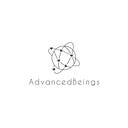If You’re Calling it the Next/New Normal, You’re Already Behind
The disruption that is 2020 has broken normalcy as a goal
Here is the thing I love about humans — they are inherently resilient. I know that’s a bold claim since so many are making the call for more resiliency, but when you think about it, we humans always figure it out, and pretty quickly. I will remind you this is our Fourth Industrial Revolution, our 20th fatal pandemic (our 19th version of Covid btw), and our 48th recession (if you believe that’s where we’re headed). My point is we’ll be okay. We always reinvent, recreate, and find our way back to humanity. It is actually so very beautiful.
For organizations and leaders within them, though, you have the work of figuring out what the reinvention entails, what the next phases will shape out to be and of course, how to stay viable all the while. So it is completely logical that your focus is on returning to work and the new/next normal. Because, in our fear of change and discomfort with ambiguity, it feels good to say we have “figured it out” or are at least working on it. It feels more in control and less risky than observing and waiting.
Here is a secret though: normal sucks. And the majority of employees — even the unemployed ones — don’t want to go back to that or anything even close to it.
Normal implies conformity, and if we’ve learned anything in 2020 it is that the ability to get things done at work and keep our customers and employees happy means allowing for individual personalization and authenticity within broader structures.
So to be very clear — this is not a post supporting complete anarchy or proposing that every snowflake has their day. It is however, acknowledging that normal requires a definition and a box, and definitions and boxes just simply won’t be tolerated by workers anymore — be it based on the color of their skin, who they love, how they get their work done, their gender, who they take care of in their off hours, or when they are most productive. Provide the parameters — we need to achieve this and we will measure X. Then let your workforce drive how that work gets done. Allow workers from across the organization to contribute to work (many orgs are crowd and in-sourcing expertise as an example).
As a complete World Economic Forum groupie, I love the language and mindset that they propose not of the new normal, but The Great Reset. If you’re a numbers person and you want to see some data to prove it — check this out. Organizations are generally not going to a new normal. They are breaking barriers and flat out redesigning what they stand for, how they support their workers and how they will function with their employees to deliver.
So what do you do now, you’re probably asking.
Do not fall into the ways of the past with leaders and execs as all knowing superheroes. You just aren’t. It doesn’t make you a bad leader. No one knows exactly what customers and employees expect anymore — so you have to ask them. Then, co-create and delegate like you’ve never done before — this is the only way to ensure you get as close to “right” as possible. Teams should involve diverse perspectives by all definitions (x-functional, identity groups, stakeholder groups).Then, you work with them to reset, re-imagine and innovate the experiences you deliver across all stakeholders. This way of working, which is really human centered design, is the best way to stay contemporary and focus your work efforts on the most meaningful outputs for the highest impact to your business, customers and employees. No one really has the spare time, energy or money to do otherwise.
And, in doing so, you provide yet another example of that brilliant human resiliency.
